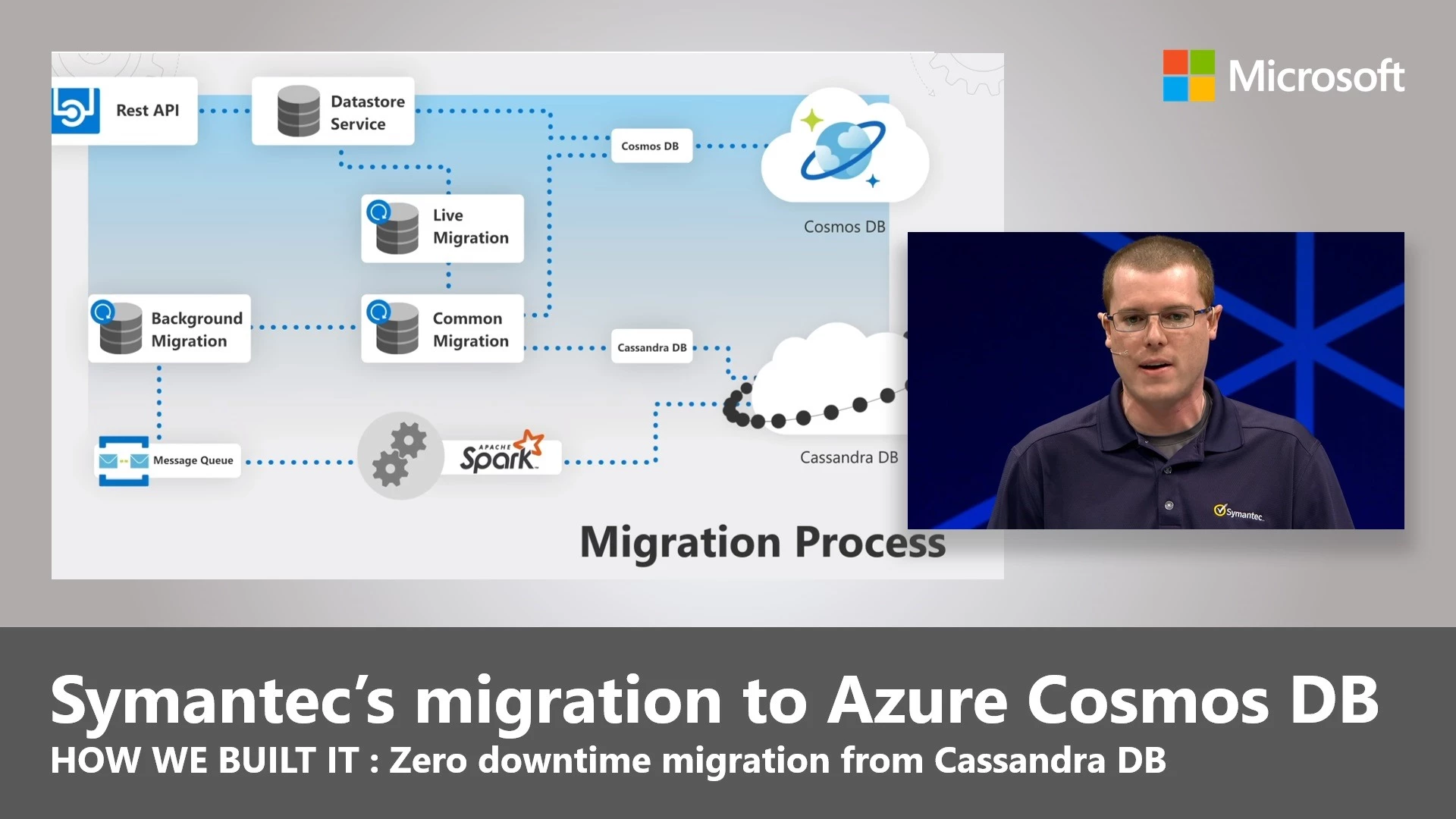Azure Cosmos DB, Customer stories, Databases
Symantec’s zero-downtime migration to Azure Cosmos DB
Posted on
1 min read
How do you migrate live, mission-critical data for a flagship product that must manage billions of requests with low latency and no downtime? The consumer business unit at Symantec faced this exact challenge when deciding to shift from their costly and complex self-managed database infrastructure, to a geographically dispersed and low latency managed database solution on Azure.

Symantec consumer services protect customer data and identities on over 40 million endpoints across 150 countries, and manage over 15 billion global requests daily. “Our goal is more than keeping data safe,” explains Stephanie Alibrandi, Software Engineer at Symantec. “It’s keeping families and people safe by keeping their information in a secure place.”
They knew a move to the cloud was the right decision for managing scale, increasing performance and decreasing costs. They also knew that as a brand built on trust, and with a five-second service level agreement (SLA) to maintain, they couldn’t have any downtime or service degradation during the move. Alibrandi and team shared their business requirements and decision to adopt Azure Cosmos DB in a recent case study.
Achieving the zero-downtime migration
Once the decision was made to move to cloud, the team’s focus shifted to how to successfully migrate their data. A live migration is no small undertaking and the team had two major challenges to overcome:
- Migration needed to be completed quickly to reduce the cost of running two parallel systems.
- The sheer volume of data – billions of rows across many distributed databases
Technical Architect Michael Shavell shares on a special “How we built it” episode of Microsoft Mechanics Live, how their migration strategy and selection of Azure Cosmos DB enabled them to make the shift with minimal code changes and zero downtime.
To learn more, watch the dive deep on Symantec’s migration strategy, including their workload focused approach, lessons on right sizing scale, and their insights-driven DevOps model for monitoring load demands on the service as part of their zero down-time migration approach.
